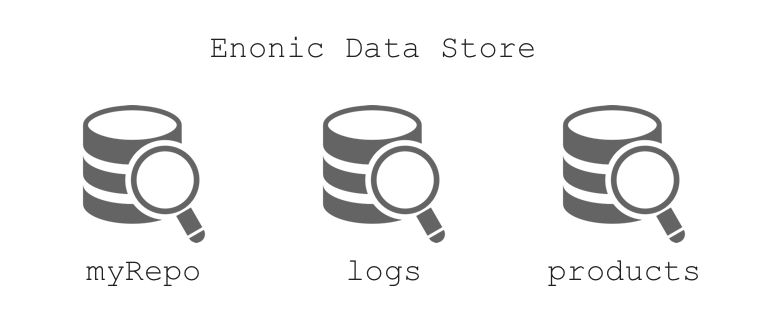Nodes and repositories
Contents
Introduction
Repositories and nodes are the fundamental concepts that enable you to create and store data in XP. Nodes are the smallest possible data object that can be created, and they are always stored in a repository. A simple comparison might be: If a repository is a drive, nodes are the files (and folders).
Nodes
Each entry in a repository is called a Node.
A node essentially consist of:
When nodes are created in a repository, the following happens:
-
For new nodes, a unique identifier is created
-
A node identifier is always be unique within its repository
-
For every modification, a unique version identifier is created
-
The data are persisted the blobstore and instantly indexed.
-
The specific version of the node is then added to the specified branch
Nodes can also be stored in a hierarchy, meaning they also have a path - similar to a file system.
The root node Every repository has root node with the identifier 000-000-000-000, and the fixed path /. |
Repositories
Repositories are essentially containers of nodes. You may create any number of repositories within a single instance of Enonic XP, and even perform queries across them.
Each repository has a unique name, where best practice is to name or prefix the repository according to your application. i.e. a good repository name might be 'com.company.myapp'
Starting from XP 7.15.0 you can flag repository as transient meaning that their data is not stored in system dumps and snapshots.

System repository
The storage ships with a repository known as the system repository. The system repo is used for the following data:
-
Repository metadata - for other repos created within the instance
-
Id-providers - including users, groups and roles.
-
Application binaries - for apps installed through the API